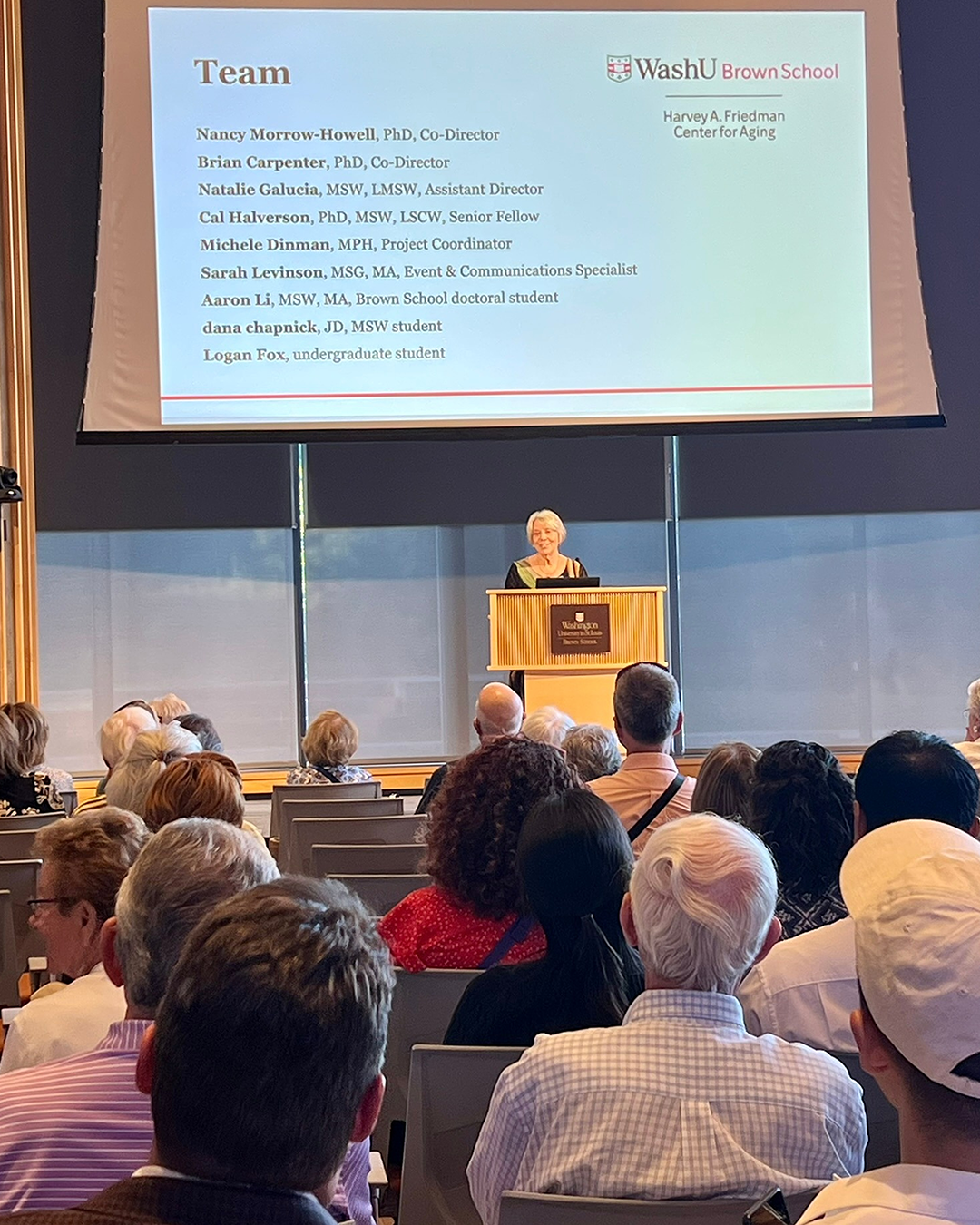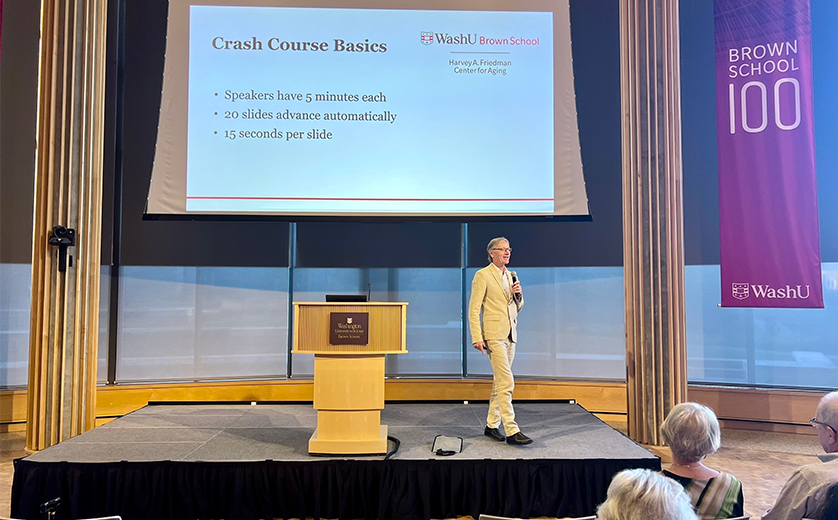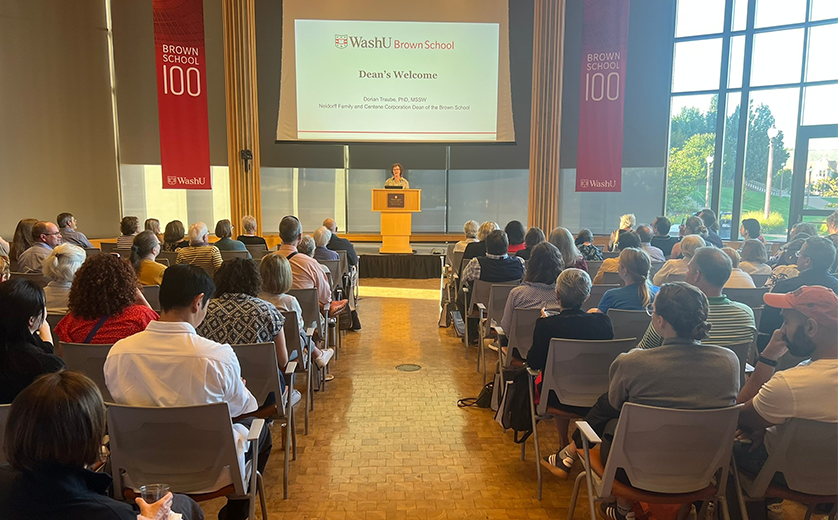For nearly three decades, the Harvey A. Friedman Center for Aging at Washington University has been at the forefront of research and programs addressing the challenges and opportunities of an aging society, from health care and housing to preparing for retirement and combating ageism. The center has become a nationally recognized resource for training professionals and helping communities to support older adults.
Now part of the Brown School, the Friedman Center is WashU’s only program dedicated exclusively to interdisciplinary aging research, education and community engagement. To celebrate its relocation, the center hosted a lively event on Sept. 25 in Hillman Hall’s Clark-Fox Forum, drawing more than 140 attendees, including students, faculty, alumni, community members and local leaders in aging services.
Dorian Traube, the Neidorff Family and Centene Corporation Dean of the Brown School, opened the celebration by reaffirming the school’s commitment to the center’s interdisciplinary mission.
“Since its inception, the Friedman Center has shared a warm and collaborative relationship with the Brown School, with many shared people, projects and values,” Traube said. “The center provides natural synergies with the older adults and aging society specialization within the Brown School’s MSW program. We are delighted to welcome the Friedman Center team as vital members of the Brown School community.”


Nancy Morrow-Howell, the Betty Bofinger Brown Distinguished Professor of Social Policy at the Brown School and co-director of the Friedman Center, reflected on the center’s history and mission. She highlighted its role in connecting individuals and organizations across disciplines to advance research, translate findings into practice, expand education on aging, and support community initiatives.
The center’s work is especially timely. U.S. Census data show that the number of older adults nearly quintupled from 1920 to 2020, reaching 55.8 million, or nearly 17% of the population.
Brian Carpenter, center co-director and professor of psychological and brain sciences in Arts & Sciences, served as master of ceremonies. Adding a playful touch, Carpenter and his team, including Cal J. Halvorsen, associate professor at the Brown School and senior fellow at the Friedman Center, tossed T-shirts into the audience before the talks began. The evening’s program featured the center’s signature “Crash Course on Aging,” a series of rapid-fire talks with researchers, local aging professionals and volunteers speaking on topics ranging from financial resilience as people age to caregiving networks in rural Nepal.
Founded in 1998 with support from Chancellor Emeritus Mark Wrighton and an endowment from the Harvey A. and Dorismae Hacker Friedman family, the center has long partnered with a wide network of researchers, practitioners, and community organizations to advance the well-being of older adults locally and globally. The center offers a variety of free programs that are open to the community.
